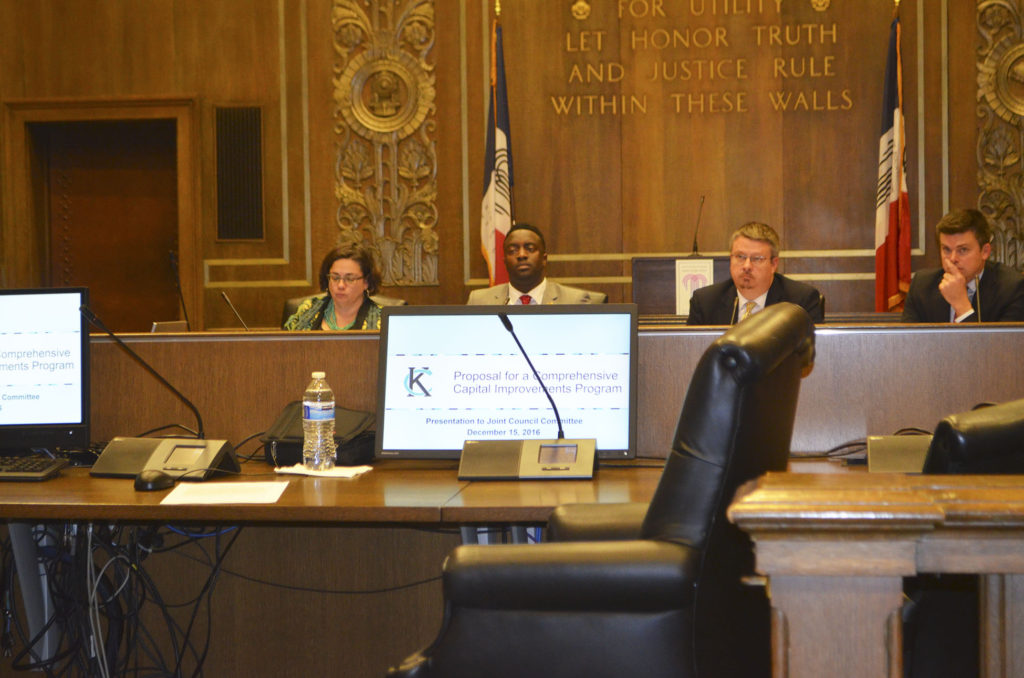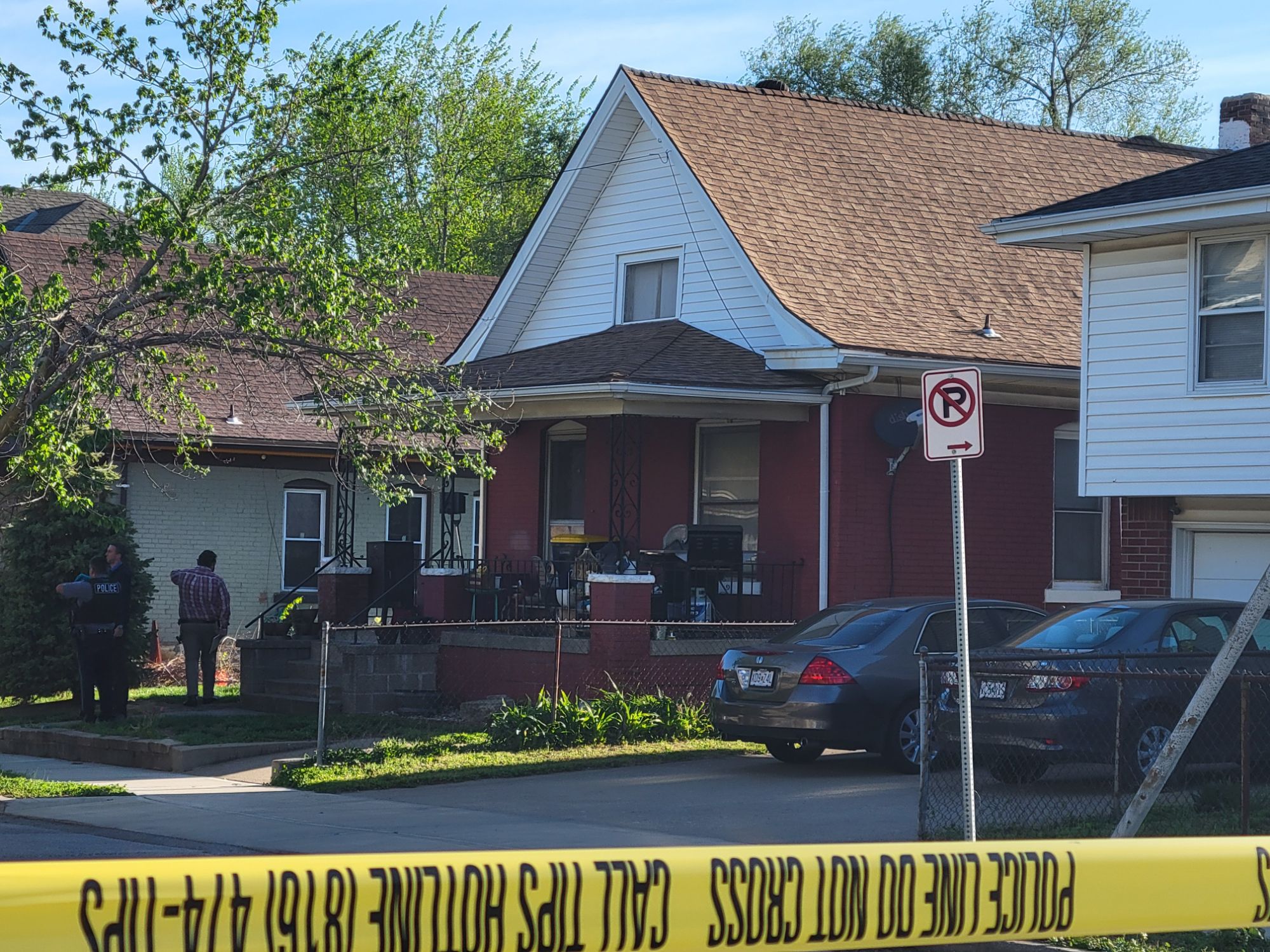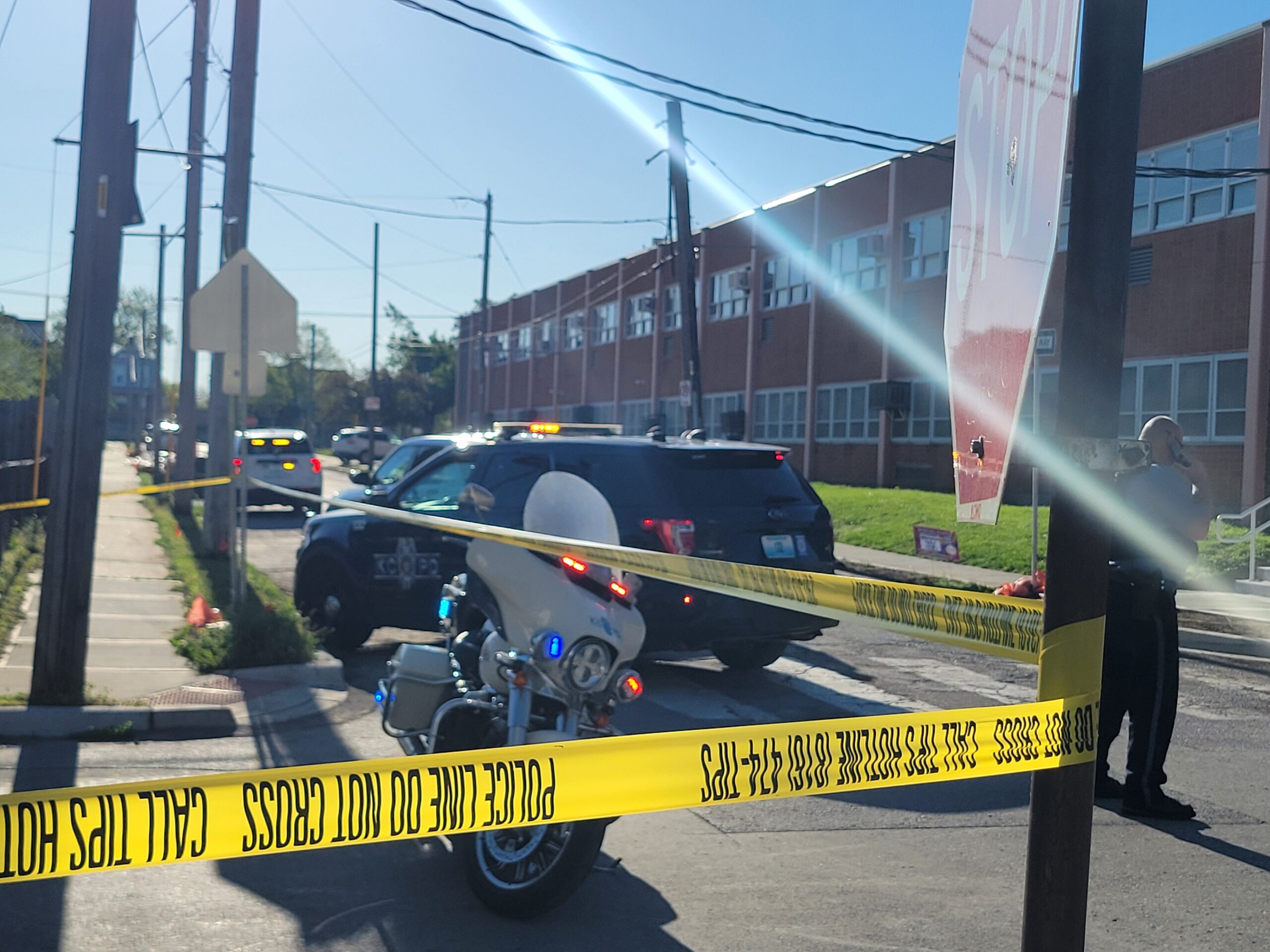Northeast News
December 15, 2016
KANSAS CITY, Missouri – A debate continued at City Hall on Thursday, December 15 over how the ballot language of a potential $800 million General Obligation bond should look – and what can be done to ensure that 57% of Kansas City’s taxpayers vote for the measure in April.
The KCMO City Council held their second joint Finance and Governance and Transportation and Infrastructure committee meeting in as many weeks on Thursday, spending more than two hours debating details of the proposed bond issuance and listening to more than a dozen comments from the public. At the conclusion of the meeting, joint committee co-chairs Jermaine Reed and Scott Wagner agreed to meet again on Dec. 22 in order to hammer out ballot language that will be amenable to council members and taxpayers alike. The deadline to submit bond language for the April ballot is on January 24.
“I suggest to this committee and to our colleagues that next Thursday at 9:30, we start with sort of the making of the sausage and debate for proposed ballot language,” said Reed.
KCMO Finance Director Randy Landes began the Dec. 15 session by running Council members through a brief history of bond measures in Kansas City, noting that specific bond language is typically general in nature. According to Landes, the notable exception to that rule came in 2004, when the City Council drew up a companion resolution to a bond issue that placed specific percentage caps on spending in select areas. He noted that problems arise when 20% of funds are assigned for streets and 30% are assigned for bridges.
“We got to the point where we needed 21% for streets, but we couldn’t do that,” said Landes. “We don’t like restrictions, because that necessarily wipes away future options.”
Later in the meeting, Council members debated a rough draft of potential ballot language put together by former 6th District Councilman John Sharp. That document mentions specific projects, though it doesn’t go so far as to dictate funding requirements. Included in Sharp’s proposed ballot language – which the Council utilized on Dec. 15 as a conversation starter – are a handful of signature projects aimed to draw support from Kansas City taxpayers.
The list was headlined by two projects expected to leverage significant public-private partnerships: the animal shelter set to be built off Gregory Blvd., and renovations to Corinthian Hall at Kansas City Museum. Other items listed included funds for arterial streets, bridges, building and repairing sidewalks (with no assessment to property owners), flood control, ADA-related improvements, undetermined parks projects, bus rapid transit improvements along Prospect Ave., and maintenance on public buildings, which would be based on PIAC recommendations.
Council members Katheryn Shields and Alissia Canady expressed concerns about the wide breadth of the proposed ballot language, and Reed acknowledged the challenges of creating the best version of the $800 million bond package.
“We have 36 days to sort of make this sausage,” said Reed. “Hopefully it doesn’t burn.”
Shields also had questions about the city’s AA credit rating, which staff has warned could be negatively affected by an $800 million bond issuance. She wondered how that could be the case when the city has identified a funding source (the accompanying annual property tax increase) to pay for the improvements.
“I’m kind of confused by this reference to the five-year plan. We had a funding mechanism for funding the five-year plan,” said Shields. “We had already identified the funds to pay for those improvements.”
Mayor Sly James responded that his discussions with credit reporting agencies have revealed that the city’s credit could stand to be affected as a result of a bond issue.
“The credit ratings are affected by those, whether or not there is a funding source,” James replied. “I would not underestimate the impact on credit.”
During public comments, Sharp stepped to the podium to defend the inclusion of more specific language in his much-discussed ballot proposal.
“It just seemed to me that we’re really missing an opportunity to mention some of these things that I think we all realize have broad appeal, and that we intend to do,” said Sharp.
Sharp specifically cited the addition of and repair of sidewalks – especially without an assessment to homeowners – as a key issue that could move the needle for voters.
“We desperately need them in the Ruskin area. I see ladies pushing baby carriages in the street; I see people in wheelchairs in the street, because you have ditches on the sides of these little two-lane asphalt roads,” said Sharp. “Those folks don’t have several thousand dollars to pay for new sidewalks, so that has some real appeal to them.”
The former Councilman further argued that the inclusion of specific language regarding the proposed animal shelter would be a boon for the $800 million G.O. bond.
“We all agree it’s needed, our shelter is an embarrassment, and the Kansas City Pet Project does some miraculous work to achieve no-kill status there. But it’s in spite of the facility, not because of it,” said Sharp. “I think we definitely should mention that; that’s just four more words in the ballot language.”
“I know staff wants total flexibility, but if it doesn’t pass we don’t have any flexibility, because we don’t have any money,” Sharp added.
Public testimony was also provided by Northeast stakeholders Lisa Donnici of the Scarritt Renaissance Neighborhood Association and Bobbi Baker-Hughes of the Independence Avenue CID and Northeast Chamber of Commerce. Donnici stated her hope that the renovations to the Kansas City Museum’s Corinthian Hall will remain an important part of the bond package.
“The museum is the neighborhood’s key cultural anchor and a major motivator for economic development in the Northeast,” said Donnici. “The museum is also critical to continuing neighborhood revitalization that is currently happening in the Northeast neighborhoods.”
Baker-Hughes focused on sidewalks during her two minutes of public testimony.
“We walk in the streets, and there’s a reason for it,” said Baker-Hughes. “Our streets are narrow, our kids are growing, and they’re doing it in the street. They need sidewalks.”
As the meeting drew to a close, City Manager Troy Schulte aimed to tamp down the idea that the proposed bond includes too many focuses. He noted that when all is said and done, he expects to spend roughly 50% of the G.O. Bond money on vital infrastructure improvements.
“We have over $1 billion in street reconstruction needs,” said Schulte. “A significant portion of this will go towards roads and bridges.”
The Council will reconvene on December 22 to further discuss details related to the $800 million General Obligation Bond. The final City Council meeting before the ballot language is due will be on Thursday, Jan. 19. If you would like to provide input about the plan, visit kcmomentum.org. To learn more about the proposed bond package, check out the previous coverage by the Northeast News.



















